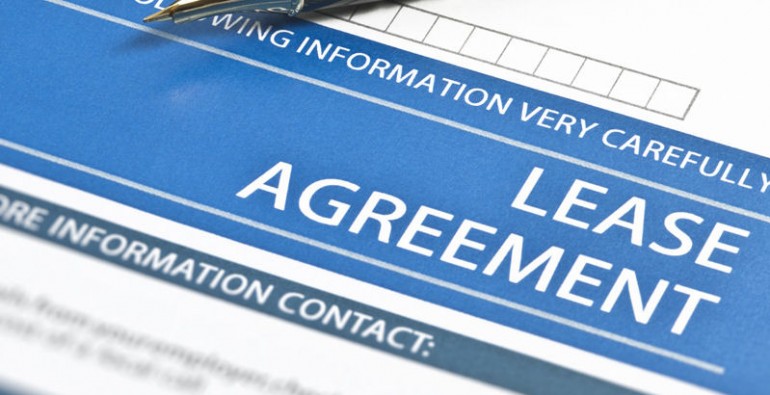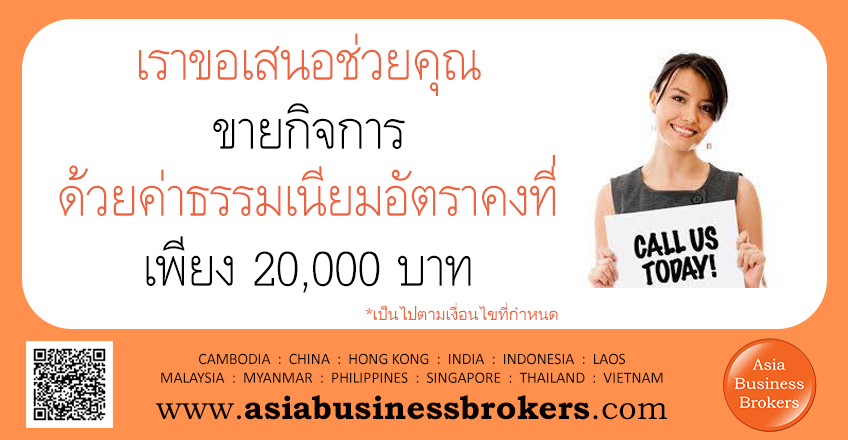
Leasing a Commercial Premises in Thailand
The two common options for leasing commercial premises in Thailand are:
- RENTAL ONLY. Lease the premises (with or without furnishings and/or equipment) for a monthly rent and pay a Security Deposit and/or Key Money.
- SALE AND RENT. Buy the existing business (usually with furnishings and/or equipment), rent the premises for a monthly rent and pay a Security Deposit and/or Key Money.
Lease Period
12 months leases are common in Thailand, but are not well received by tenants. Tenants generally want a longer lease like a 3 year rolling lease (ie, 3 years with options to extend for additional 3 year blocks). Usually, a lease of only 12 months (even if it has an extension option) doesn’t give a tenant enough confidence to put capital into a business at that premises and have sufficient time to recover the investment. Short leases also affect the Landlord/Owner if an existing business is being sold with the rental, in that the buyer/lessee will have to calculate a return on investment (ROI) over 12 months only, whereas with a 3+3 lease, buyers will often calculate a ROI on 2 years or more.
Rent
Rent is the price a lessee (or sub lessee) pays to occupy and use a property in accordance with a lease (or sub lease) agreement. Rent is calculated by the landlord (or lessee in the case of sub leases) and is normally not negotiable. It is paid in advance of tenancy usually each month. Sometimes landlords require rent to be paid quarterly, six-monthly or even annually in advance.
Security Deposit
A Security Deposit (sometimes also known as a Rental Bond) is an amount of money a tenant or lessee pays to a Landlord at the start of a leasehold tenancy. Paid upon signing of the lease contract, it is held by the Landlord for the duration of the tenancy and is paid back to the tenant at the end of the tenancy provided no money is owed to the Landlord for rent, damages or other costs.
Security Deposits are not transferable. If a tenant ceases their tenancy, they are responsible for seeking a refund, and the new tenant is responsible for payment of the new Security Deposit.
Not all Landlord’s charge a Security Deposit, but where they do, it is common that the amount will be either 2 or 3 times the rental amount, for example if the rent is 50,000 baht, the Security Deposit is typically 100,000 baht or 150,000 baht.
If a tenant’s rent is increased during the period of the tenancy and after payment of the Security Deposit, the Landlord may ask for an additional payment for the Security Deposit. For example – rent was 50,000 baht and you paid 100,000 baht Security Deposit (equivalent to 2 months’ rent). Three years later, rent is increased to 55,000 baht. The Landlord may ask that you lodge an additional 10,000 baht as Security Deposit. In practice however, this rarely occurs.
Upon payment of the Security Deposit, the Tenant should be given an official receipt indicating the date paid, amount and reason for payment – Security Deposit for tenancy at XYZ. It is important for tenants to keep this receipt as it may actually be required some years later when you terminate your tenancy and seek a refund.
Lessees who sub lease may also collect a Security Deposit from Sub- Lessees in the same way as Landlords do.
Key Money
Key Money is a non-refundable amount of money sometimes paid by lessees to landlords at the commencement of a lease. It can be paid instead of a security deposit, or in addition to a security deposit. Sometimes the amount paid is paid only once during the tenancy, in other situations it is paid at regular intervals thereafter – commonly upon every lease renewal.
Landlords often charge key money in exchange for a lower monthly rent. For example, if a landlord requires 100,000 baht a month rent (1.2 million baht a year or 3.6 million baht every 3 years), they may instead, choose to charge 1.4 million baht key money every 3 years and rent of only 60,000 baht a month. This option works out at about the same amount over a three year lease period. Landlords like the key money option better because it guarantees them income even if the lessee terminates their lease early. They also perceive it is better for the tenant as it makes the tenant’s monthly rental commitment easier to meet.
Key money is not charged in all locations in Thailand, but is particularly common in tourist areas like Pattaya, Phuket, and Sukhumvit and Silom in Bangkok.
For a more detailed explanation of key money, please see ‘Key Money – What is it and How does it Apply?’
Lease Contract (or Lease Agreement, or Rental Agreement)
A lease is a contractual arrangement calling for the lessee (tenant or occupant of the property) to pay the lessor (landlord or property owner) for use of the property and its improvements. Broadly put, a lease agreement is a contract between two parties, the lessor and the lessee. The lessor is the legal owner of the property; the lessee obtains the right to use the property in return for regular rental payments. The lessee also agrees to abide by various conditions regarding their use of the property.
A lease is a legal contract, and thus enforceable by all parties under the contract law of Thailand.
Common elements of a lease agreement in Thailand include:
- Names of the parties of the agreement.
- The starting date and duration of the agreement.
- Identifies the specific premises (by street address) being leased.
- Provides conditions for renewal or non-renewal.
- Has a specific consideration (a lump sum, or periodic payment/s) for granting the use of the premises – In Thailand referred to as Key Money.
- Has provisions for a security deposit and terms for its return.
- May have a specific list of conditions which are therein described as Default Conditions and specific Remedies.
- May have other specific conditions placed upon the parties such as:
- Need to provide insurance for loss.
- Restrictive use (alcohol not to be sold on the premises, gas cooking prohibited, etc).
- Which party is responsible for maintenance.
- Termination clause (describing what will happen if the contract is terminated early or cancelled, stating the rights of parties to terminate the lease, and their obligations)
Assets
Assets commonly (but not in all cases) refer to moveable items like furnishings and equipment, but not immovable items like fittings and fixtures. It is important when entering into a lease or sub-lease to understand what assets are included in the lease, what the ownership status is, and who is responsible for the maintenance and upkeep of the assets.
Where businesses are offered for sale and rent, typically furnishings and equipment are included in the sale price and are then owned by the buyer/lessee. In these cases, the owner/lessee is also responsible for their upkeep and maintenance, or may even choose to sell them. In a restaurant for example, the kitchen equipment and dining room tables and chairs, crockery and cutlery are all most likely included as assets.
Sometimes businesses offered for rental only, will physically include assets, and the lessee will become responsible for their upkeep and maintenance, but will not own them. This is common for buildings converted to small hotels or guest houses.
Prior to buying a business and/or entering into a lease arrangement, buyers will be provided with a list of assets included in the sale/lease and the terms under which they are given.
How to Find a Tenant/Buyer
It is hard to believe that in the 21st Century, many Thais rely upon an advertisement in their shop window to lease their premises. This may in fact explain why there appears to be many empty buildings and shops around Thailand. There is always good demand for good properties and buyers don’t always come from the same area where the property is located. It is important therefore to advertise commercial spaces and properties to those who would potentially buy or lease them.
At Asian Business Brokers, we always have a list of people waiting to rent good shop houses in good locations to convert them into businesses. Unlike a real estate agency, who sells and rents residential properties, we only deal in commercial properties and land for commercial use. Our advertising and database of potential buyers/lessees is therefore targeted specifically to people looking for commercial properties. We have a very good success rate leasing commercial premises in Thailand.
More Information
For more information on leasing your commercial premises or land, or if you are a potential buyer or lessee looking for good properties for your business, please contact us.
Written by Parinee Insoongnoen (Palm)
Managing Director Asian Business Brokers (Thailand) Co., Ltd
for Asian Business Brokers © 2016
12 February 2016






